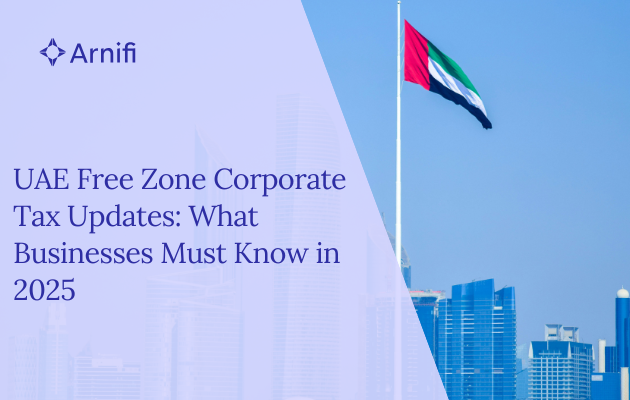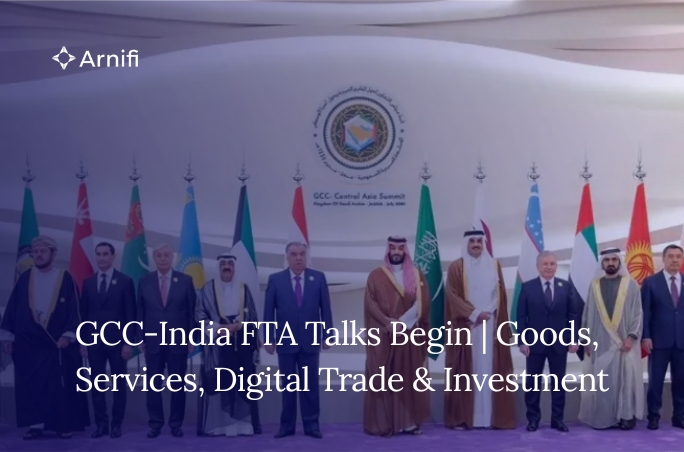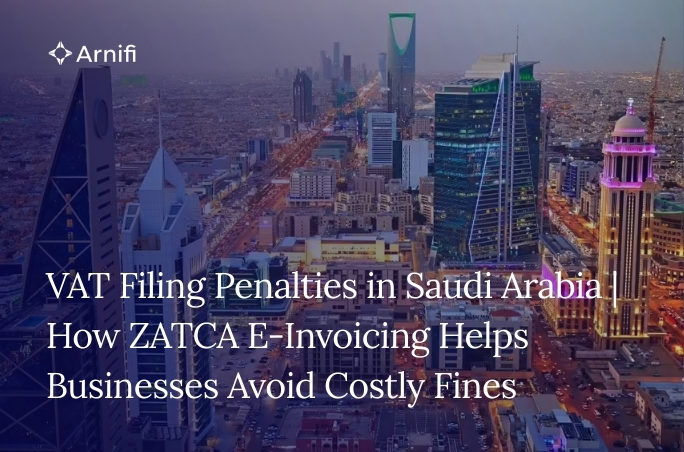UAE Free Zone Corporate Tax Updates: What Businesses Must Know in 2025
by Mushkan S Sep 05, 2025  8 MIN READ
8 MIN READ

The UAE has just reshaped its free zone corporate tax rules, and for businesses operating in these zones, the changes are more than just technical tweaks; they reshape the opportunity landscape. The Ministry of Finance issued two major decisions in 2025, updating and clarifying which activities qualify for tax incentives in free zones and how companies should approach commodity pricing.
Why does this matter now? Because the decisions expand what counts as qualifying activities, especially in industries like industrial chemicals, environmental commodities, and by-products. On top of that, businesses finally have a clear list of recognized price-reporting agencies to follow for compliance.
The big picture: companies now enjoy more flexibility in trading a wider pool of commodities, greater clarity on treasury and financing activities, and less uncertainty around distribution rules. For investors, it signals confidence. For businesses already inside a UAE free zone, it’s about aligning with the updated free zone corporate tax rules early enough to secure the advantages.
2. What Changed: Quick Overview
In 2025, two new ministerial decisions reshaped the framework that governs free zone corporate tax rules.
- Ministerial Decision No. 229 of 2025 replaced the older 2023 framework. It broadened what counts as “qualifying activities.” Previously, tax advantages were tied mostly to raw commodity trading: metals, minerals, energy, and agricultural goods. Now, industrial chemicals, environmental commodities, and by-products of qualifying commodities have been added to the list. This is significant, especially for sectors like recycling, sustainable energy, and advanced manufacturing, where business models rely on value-added commodities outside of just raw materials.
- Ministerial Decision No. 230 of 2025 introduced an official list of recognized price-reporting agencies (PRAs). Commodity transactions now must rely on quoted pricing from these PRAs, which reduces ambiguity in audits and ensures transparency.
Together, the updates strike a balance: they expand the types of businesses that benefit from free zone corporate tax incentives, while tightening compliance procedures through standardized pricing rules. In other words, firms gain growth opportunities while also being guided toward uniform compliance standards.
3. Key Detail Breakdown
Here’s where the updates to free zone corporate tax rules matter most:
- Expanded Commodity Trading
Businesses can now trade commodities that are not limited to raw form. If a recognized market price exists, value-added or processed commodities may qualify. This widens the playing field. Take industrial chemicals or processed minerals both now fall within scope. It means more businesses can operate within free zones without tax disadvantages. - Treasury and Financing Activities
The decisions clarify that treasury and financial services offered to related parties or even for a business’s own account now qualify. This is crucial for holding companies and entities managing group-level financing within a free zone structure. It reduces the gray areas that previously made treasury operations subject to costly interpretations. - Distribution Rules
Previously, distributing goods from designated free zones raised questions if transactions involved non-commercial entities. The update clarifies that distribution to public-benefit entities doesn’t count against compliance thresholds. For example, donations or trade support to a government-recognized NGO won’t disqualify a free zone business from tax incentives.
When put together, these clarifications ease long-running compliance challenges and broaden benefits. Instead of limiting businesses to narrow definitions, the government is aligning free zone corporate tax rules with practical on-the-ground activities. The result: more predictable compliance, less operational risk.
4. Why It Matters for Free Zone Businesses
For businesses already operating in a free zone or evaluating whether to set up there these new free zone corporate tax rules change the equation in three important ways:
- Flexibility to Expand: By moving beyond raw commodities, companies in chemicals, renewable energy, or even sustainable waste management can now benefit. This is an invitation to innovate within free zone structures.
- Clarity in Compliance: With approved PRAs for pricing, businesses can remove guesswork. Commodity trades will now have standardized references, making audits smoother and corporate tax filings more defensible.
- Alignment with Global Norms: These updates reflect international tax transparency standards. In practice, this improves the UAE’s reputation as a compliant yet competitive business hub boosting investor confidence and strengthening trade partnerships.
For businesses, this means less uncertainty. Instead of worrying whether treasury activities or public-benefit sales disqualify them, firms can focus on strategy, growth, and efficiency. And that’s the bigger takeaway: aligning with updated free zone corporate tax rules is not just about compliance, it’s about future-proofing your business within the UAE’s economic ecosystem.
5. Action Items for Businesses
If you’re managing operations in a UAE free zone, here’s what you need to do right now to align with the updated free zone corporate tax rules:
- Audit Your Trade Portfolio
Review your commodities. Do your chemicals, by-products, or recycled goods now fall within the expanded qualifying categories? If yes, adjust your structure to maximize tax advantages.
- Update Your Pricing Practices
Only use rates from the Ministry’s recognized price-reporting agencies. Relying on unapproved references risks compliance fines during tax audits. - Review Treasury and Distribution Structures
Double-check how treasury functions are routed in your business. If your free zone entity handles group-level financing, ensure activities are recorded and compliant. For distribution, verify that transactions with public-benefit entities don’t accidentally get flagged. - Strengthen Documentation
Do not wait for filing season. Set up airtight pricing files, transfer pricing documents, related-party agreements, and distribution records. The new decisions place more weight on reporting accuracy, and missing documents can expose businesses to penalties.
This is where Arnifi comes in. Our team helps companies make sense of the evolving free zone corporate tax rules, ensuring portfolios are aligned, compliance risks are identified, and documentation is airtight. Whether it’s implementing new treasury structures or updating audit trails, Arnifi partners with businesses to transform compliance from a burden into a competitive advantage.
6. Strategic Impact & Broader Context
The reforms go beyond compliance they’re part of a larger economic strategy. The UAE is positioning itself as one of the most transparent and globally integrated tax regimes in the region. Updating free zone corporate tax rules shows a commitment to balancing competitiveness with credibility.
For investors, this sends a signal: UAE free zones are not static. They evolve with global markets, adding clarity while safeguarding incentives. For governments elsewhere, these rules demonstrate that the UAE aligns with OECD best practices, which helps protect its reputation in international tax dialogues.
For businesses on the ground, this means confidence in long-term planning. You can expand commodity portfolios, structure group financing operations, and maintain investor trust without worrying about suddenly losing qualifying status.
Ultimately, these changes ensure UAE free zones remain powerhouses of trade, innovation, and investment. That’s why aligning with today’s free zone corporate tax rules is not only mandatory but strategic. It’s compliance married to competitive growth.
7. FAQs
- What explicitly qualifies now under free zone corporate tax rules?
In addition to raw commodities like metals or energy, industrial chemicals, environmental commodities, and by-products of qualifying goods now count. - Which price-reporting agencies are approved?
Ministerial Decision No. 230 lists globally recognized PRAs for commodities. Businesses must align pricing references with agencies on this list for compliance. - Can treasury activities for self-funding count as qualifying activities?
Yes. Financing or treasury operations for related parties or even for your company’s own account are now explicitly qualifying under the new decisions.
- Does selling to public-benefit entities affect my tax benefits?
No. Distributions to public benefit organizations, charities, or similar entities will not impact your compliance thresholds or disqualify free zone tax incentives. - How does this affect existing businesses?
Companies should review their portfolios, document transactions more carefully, and ensure they use only approved PRAs moving forward. For many firms, this may unlock new opportunities for qualifying activities.
8. Conclusion
The Ministry of Finance’s 2025 decisions are a turning point for UAE’s free zones. By expanding what qualifies for incentives, standardizing commodity pricing references, and clarifying treasury and distribution rules, the government has simplified compliance while enhancing flexibility. For businesses, the message is clear: align with the updated free zone corporate tax rules to fully capture the incentives and safeguard against risk.
This is the right moment to act. Review your trade portfolio. Align your treasury operations. Strengthen your documentation before tax filing deadlines arrive. The clarity is here but the responsibility rests on businesses to implement correctly.
Arnifi helps companies navigate these updates with confidence. From trade portfolio reviews to compliance documentation, we streamline the process so you focus on growth, not paperwork. Reach out to Arnifi today and secure your place as a compliant, future-ready business in the UAE’s evolving tax ecosystem.
Top UAE Packages

Related Articles
Top UAE Packages



